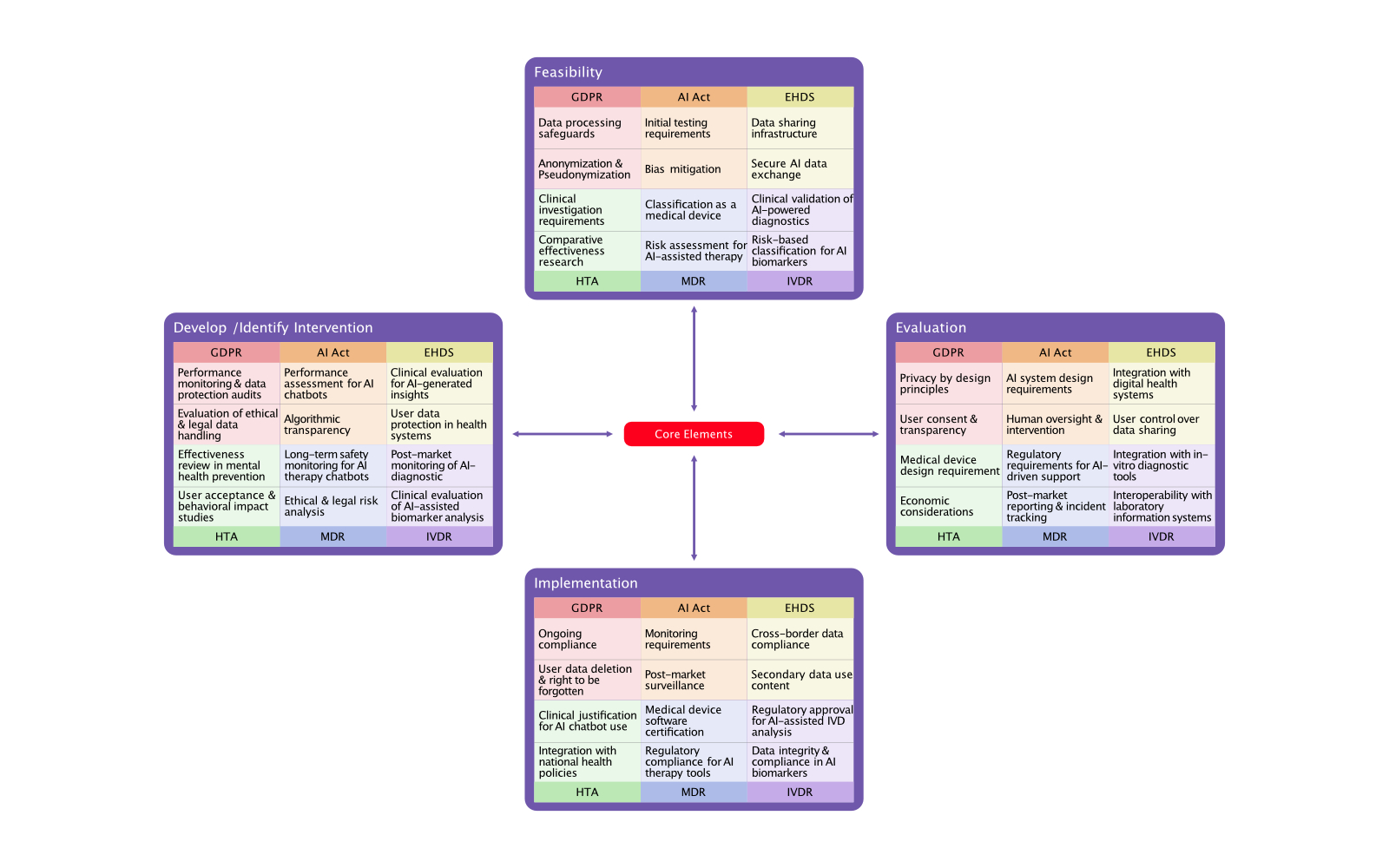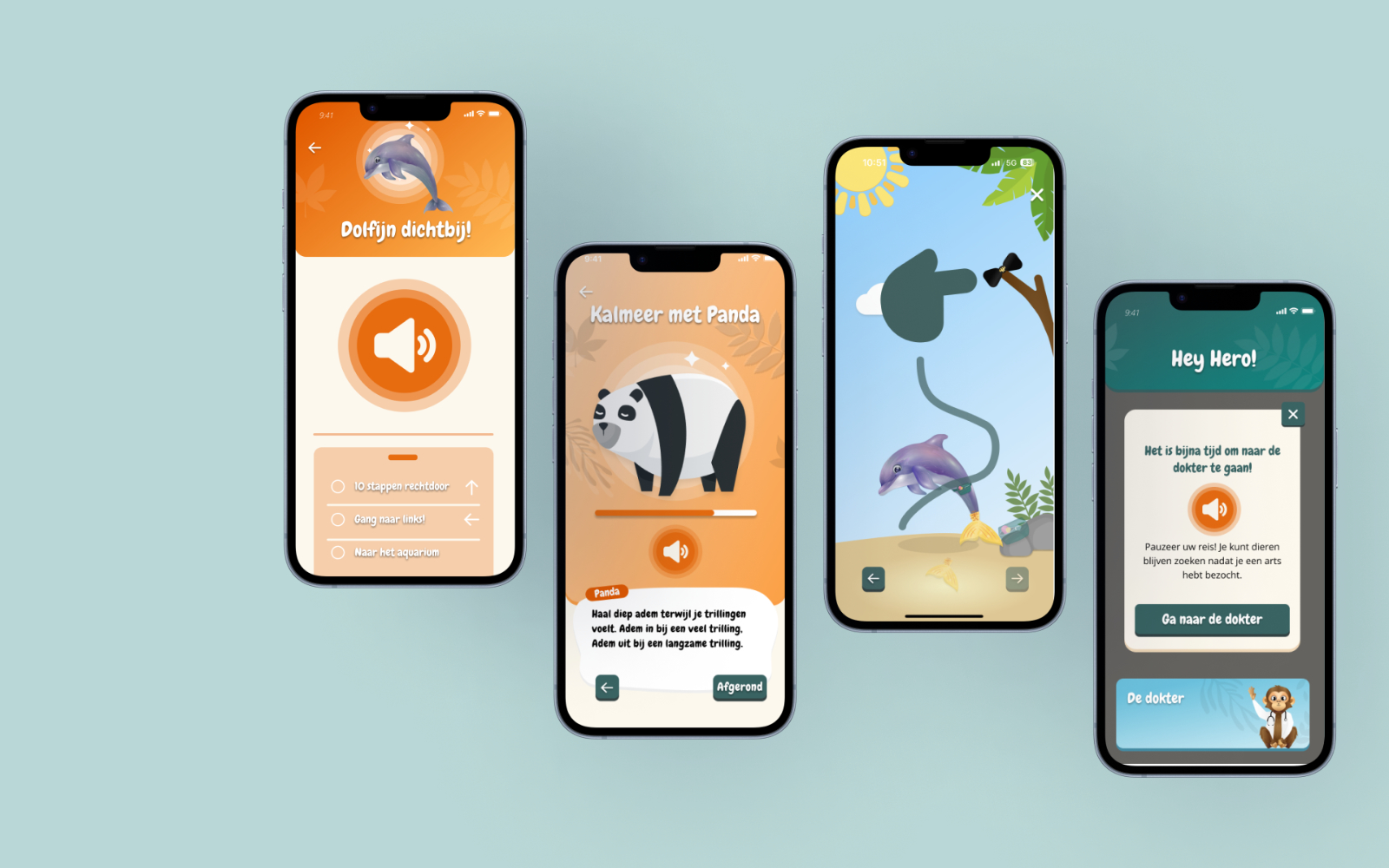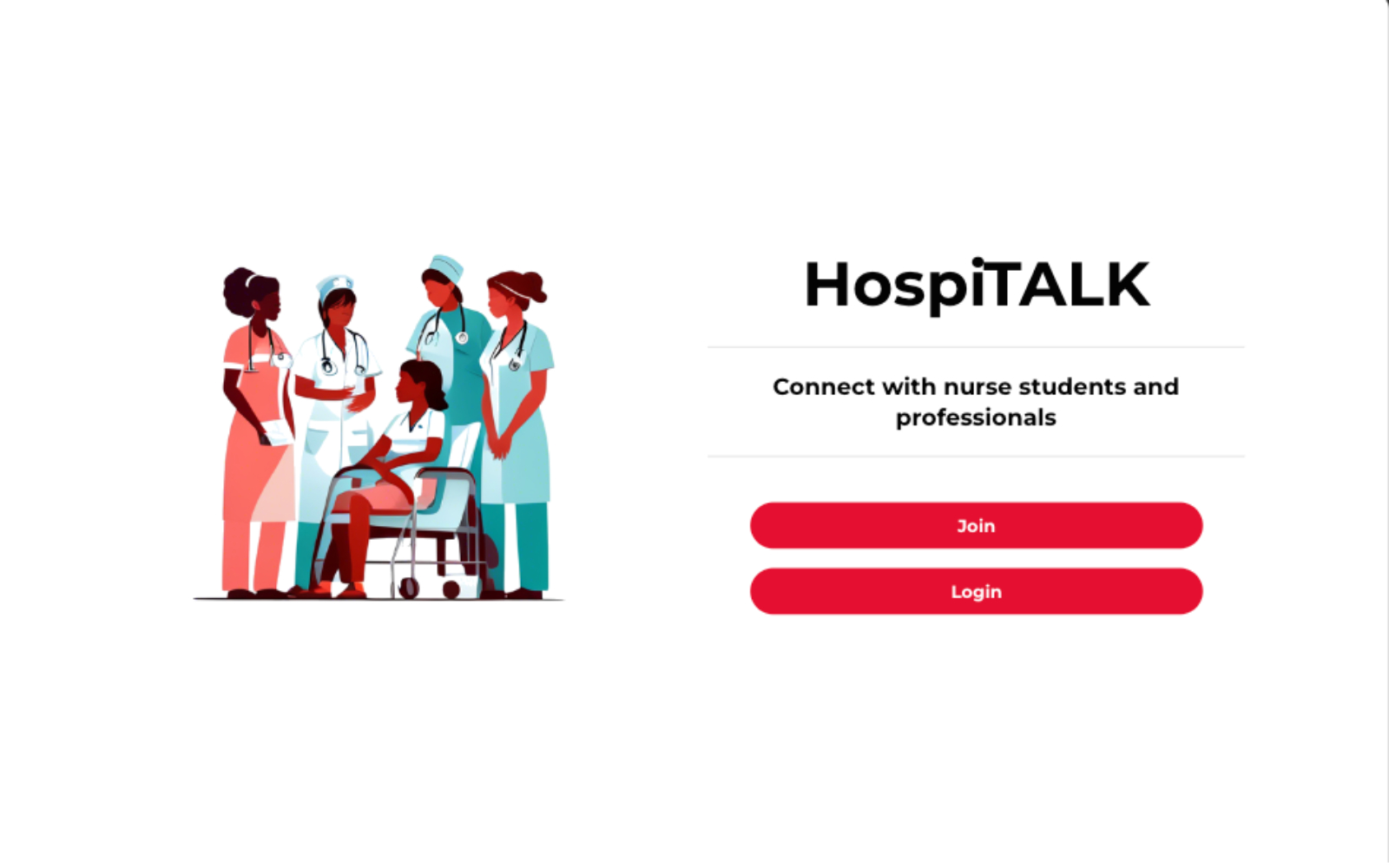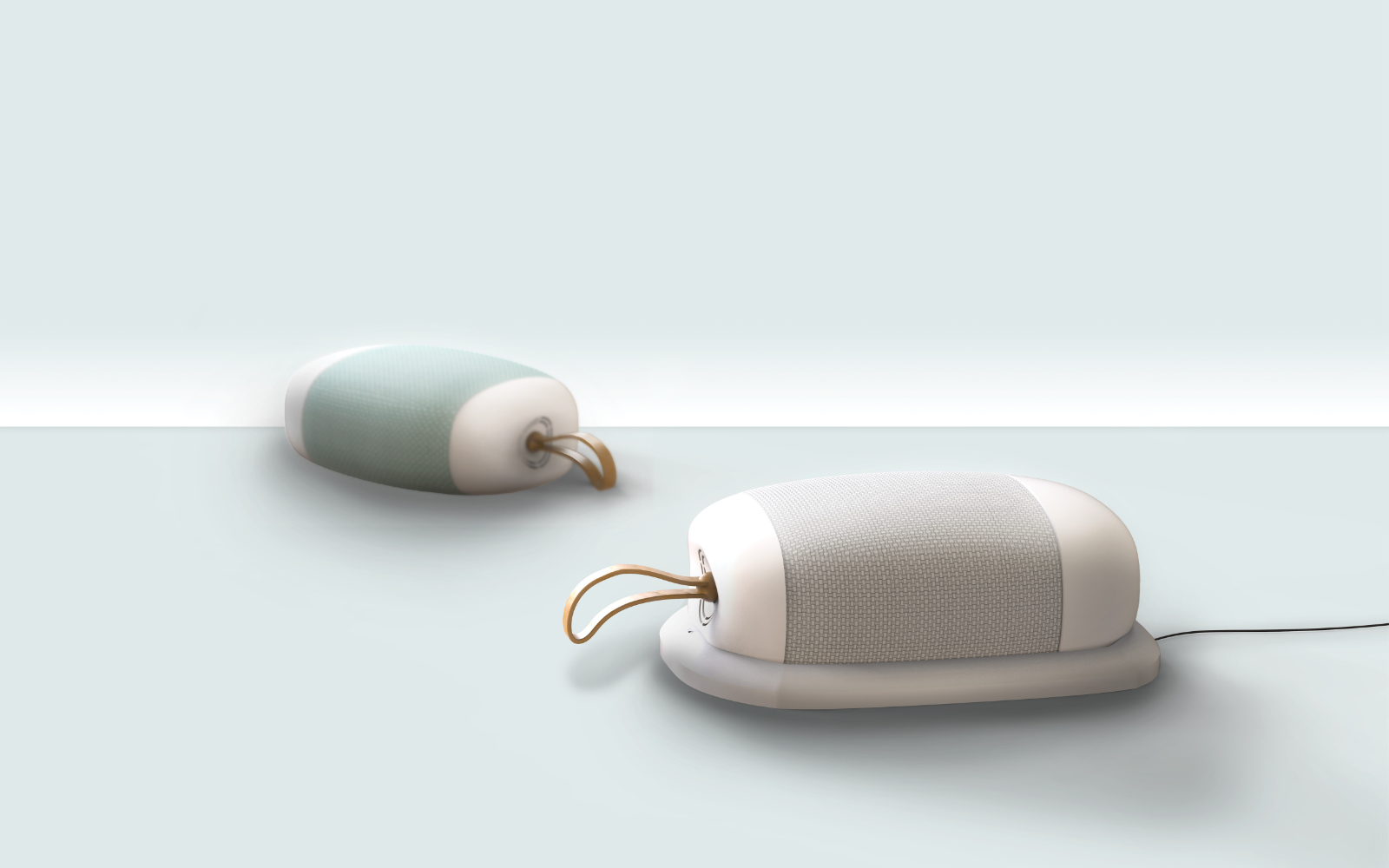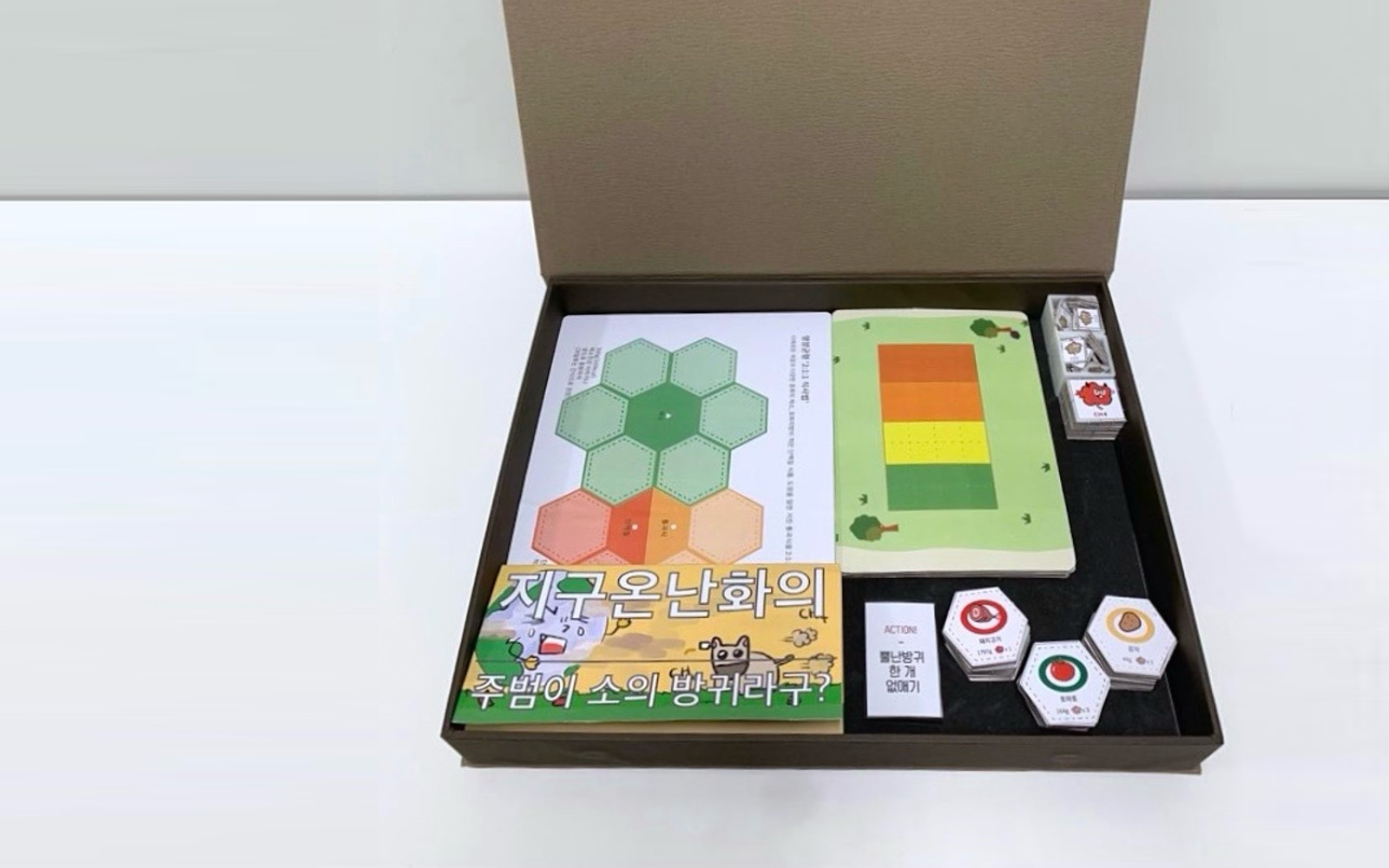Transforming the Mental Health Referral System through AI
This thesis investigates how AI can be strategically integrated into the fragmented Dutch mental healthcare referral system to address persistent systemic challenges, including inefficiencies, repeated referral loops, and fragmented coordination. Employing a multi-method, design-led approach, the research identified three core problem themes and developed a three-horizon transformation roadmap.
Systemic Fragmentation and Delays Hinder Timely Care.
The Dutch mental healthcare system is under significant pressure, evidenced by prolonged waiting lists for over 100,000 individuals and experiencing fragmented communication between General Practitioners (GPs) and specialist care (GGZ). Critically, 67 percent of cases exceed the recommended intake timeframe, and 39 percent surpass the treatment timeframe, compromising timely access and treatment outcomes. To address these urgent structural issues, this thesis adopted a design-led, visioning-oriented approach to reimagine the referral system.
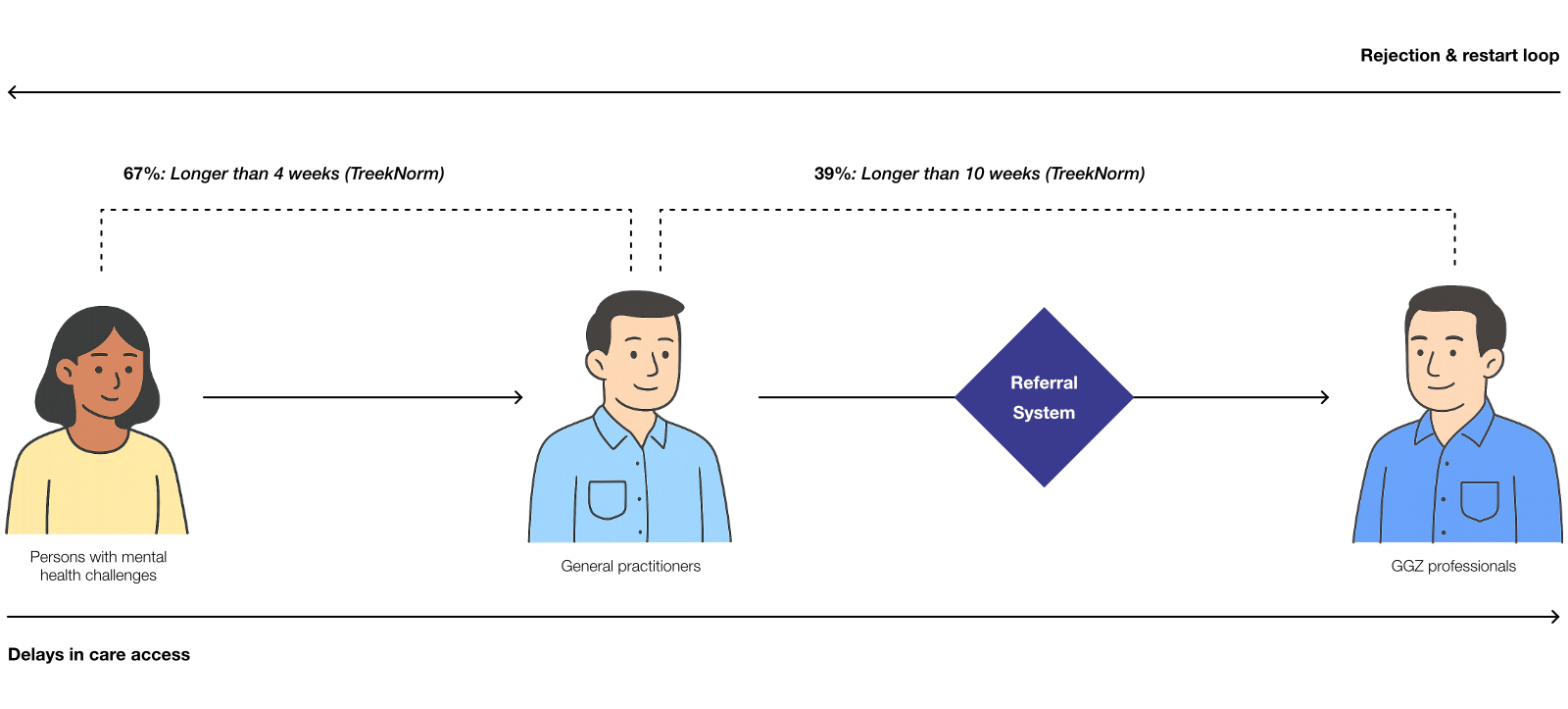
The research established that addressing systemic issues requires shifting beyond implementing isolated AI tools toward strategic, system-level approaches focused on multi-stakeholder care coordination. A key early decision was the adoption of the term ‘Persons with Mental Health Challenges (PMCs)’ to reflect a broader and more normalized conceptualization of mental health, encompassing needs beyond strictly clinical diagnoses.
Triangulating Desk Research with Participatory and Data-Enabled Approaches.
This project applied a multi-method approach that triangulated desk research with participatory and data-enabled methods to build a system-level understanding of the Dutch mental healthcare system. Combining system mapping, expert interviews, online mental health community analysis (e.g., topic modeling), and AI tool mapping revealed a GP-centred and fragmented structure, where weak integration between clinical and social care leads to cycles of confusion and delay. The findings underscored the need for system-oriented AI integration to enable coordination, continuity, and shared decision-making across care actors.
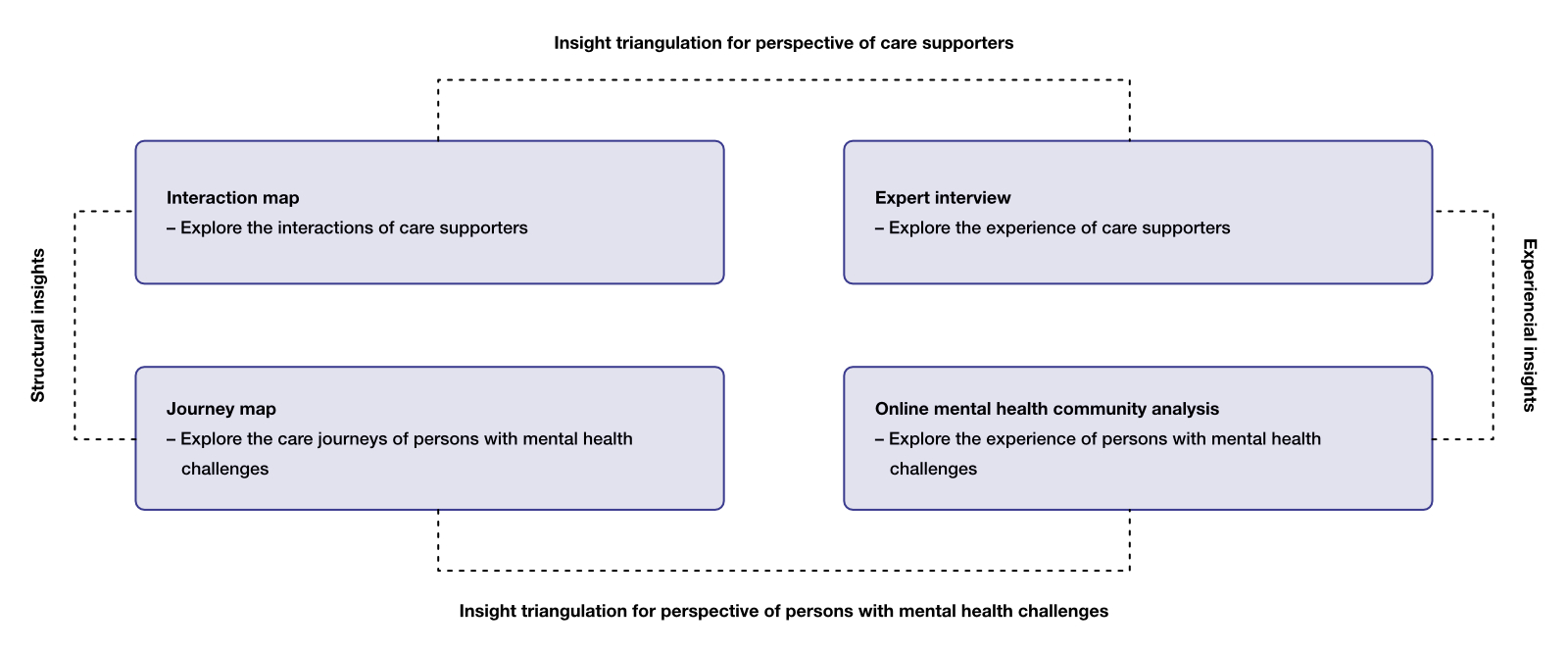
Synthesizing Insights into a System-Level Framework.
The cross-analysis confirmed that structural barriers translate into emotionally taxing cycles of confusion and delay. These recurring patterns were conceptually organized into a system-level understanding that clarified where and how coordination fails. This insight positioned AI as a potential system enabler — supporting continuity, information flow, and shared decision-making across actors in the mental healthcare network.
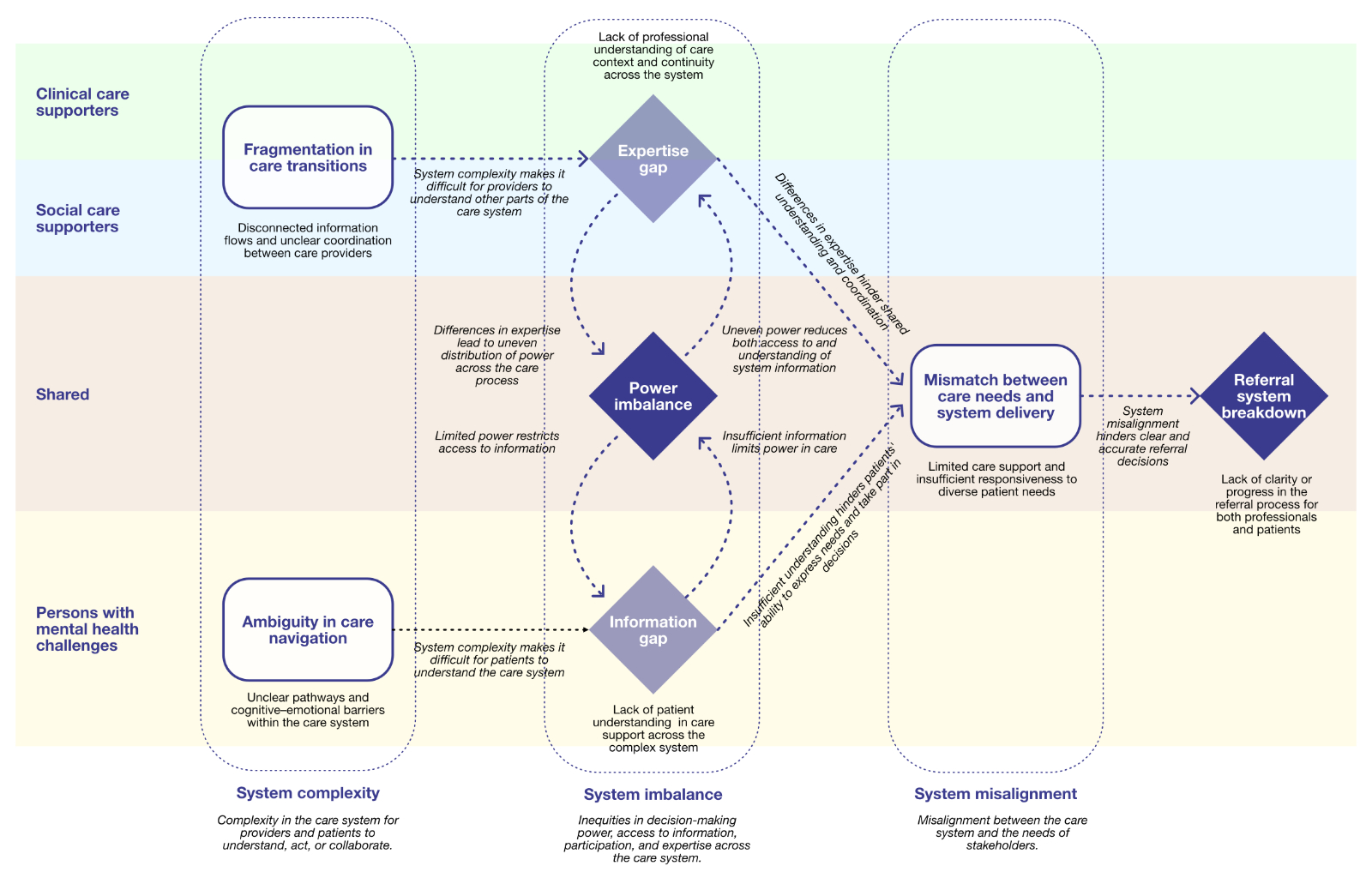
The framework visualizes interdependent problem themes such as ambiguity in care navigation, fragmentation in care transitions, and mismatch between needs and delivery. It served as a conceptual bridge between problem diagnosis and strategic transformation, shaping the foundation for the AI-enabled roadmap that followed.
Co-created Three-Horizon AI Transformation Roadmap.
The outcome is a strategic, three-horizon roadmap co-created and iteratively refined with stakeholders through an online collaboration platform to operationalize the future vision of an AI-supported Dutch mental healthcare referral system. It outlines a stepwise transformation — Horizon 1: Building the information foundation, Horizon 2: Empowering participation, and Horizon 3: Aligning coordination. Each horizon integrates AI design guidelines that embed ethical and regulatory principles derived from EU frameworks, ensuring responsible and human-centred AI adoption.
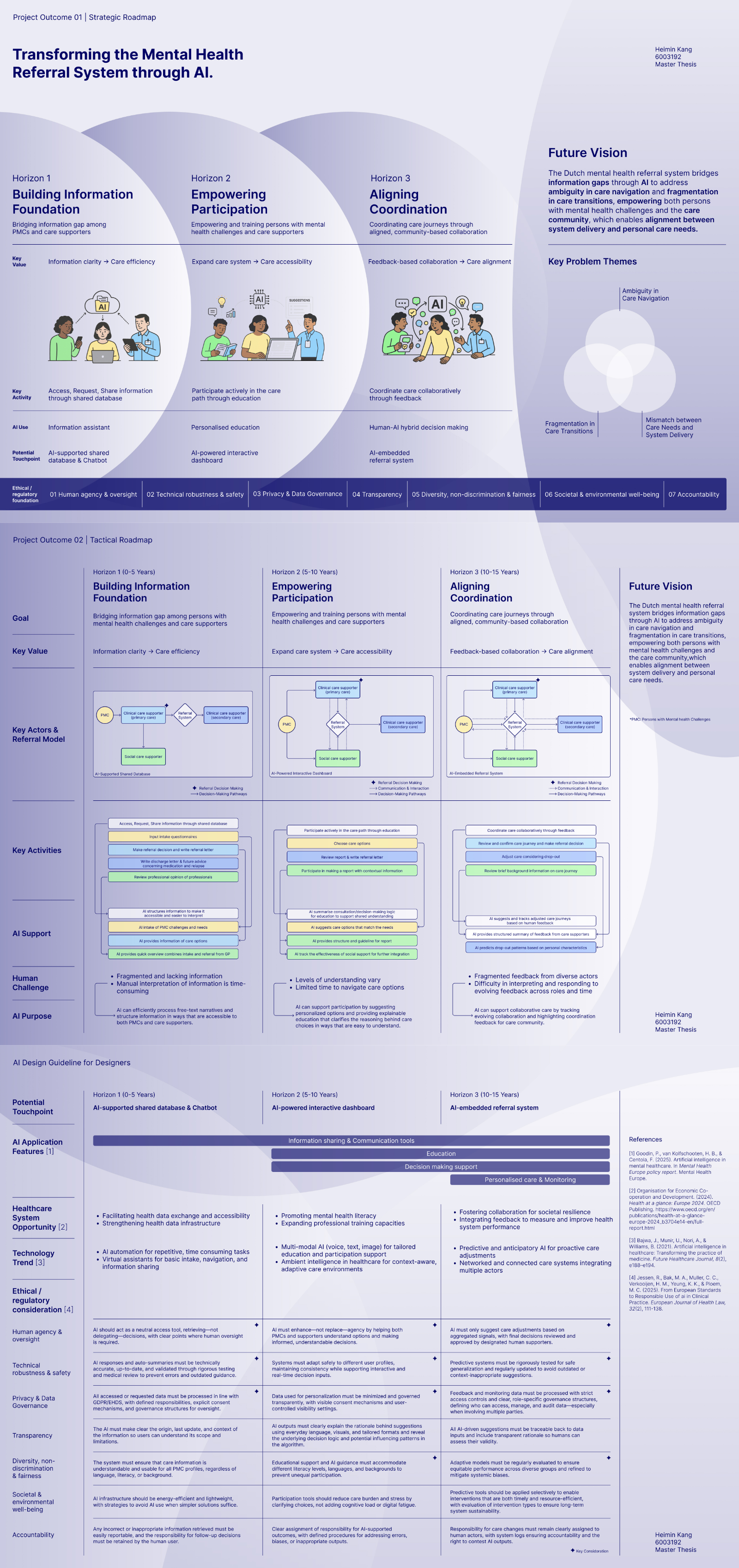
The roadmap reframes the referral system from a gatekeeping structure into a dynamic network that supports continuous information flow, participatory decision-making, and equitable collaboration between actors. It demonstrates how AI can evolve from assisting simple information tasks (H1) to enabling predictive coordination and shared decision-making (H3), emphasizing AI as an enabler — integrated with other elements of the roadmap to support the transformation of the Dutch mental healthcare referral system toward its future vision, and applied only within the scope that enables human challenges to be addressed.
